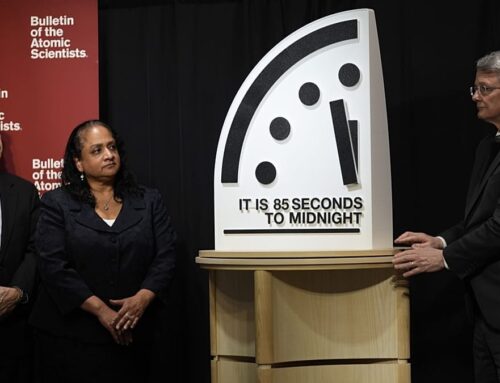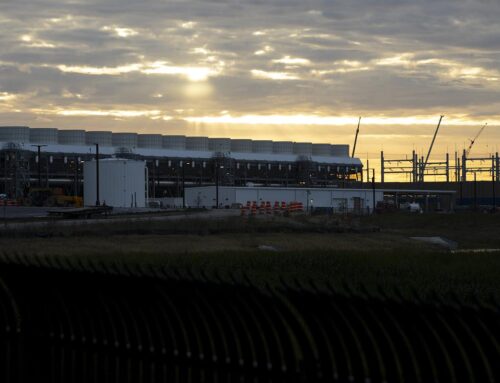Cannabis Rescheduling Remains Paused Despite Trump Support
April 1, 2025
A popular and game-changing rescheduling proposal backed by Donald J. Trump to reclassify cannabis from Schedule I to Schedule III under the federal Controlled Substances Act (CSA) remains formally active but administratively paused by a DEA judge.
If enacted, rescheduling cannabis to Schedule III would formally acknowledge accepted medical use of cannabis under federal law and would also allow for FDA-supervised research and development of cannabis-based drugs.
Although cannabis would still be classified as a controlled substance and remain under the oversight of the DEA and FDA, reclassifying it to Schedule III would significantly benefit legal cannabis businesses by changing how they are treated under federal tax law.
Specifically, it would exempt them from the limitations of Section 280E of the Internal Revenue Code, which currently bars businesses trafficking in Schedule I or II substances from deducting ordinary business expenses. Due to this restriction, legitimate cannabis companies paid over $1.8 billion more in federal taxes in 2022 than comparable non-cannabis businesses, according to data from Whitney Economics.
Reclassification would not federally legalize recreational cannabis, authorize interstate commerce, or override any state-level prohibitions.
Reclassification was initiated nearly three years ago during the Biden administration. Still, on January 13, 2025, one week before President Trump took office, the DEA’s Chief Administrative Law Judge cancelled a public hearing scheduled for January 21 and ordered parties to check back in with him in 90 days.
There is no statutory deadline for the DEA to complete the rescheduling process, so the current pause could extend indefinitely.
History of Actions on Cannabis Rescheduling
On October 6, 2022, President Joe Biden publicly called for a review of cannabis’s Schedule I classification. He directed the Departments of Health and Human Services (HHS) and Justice (DOJ) to evaluate the scientific basis for rescheduling.
On August 29, 2023, HHS sent a formal letter to the Drug Enforcement Administration (DEA), recommending cannabis be reclassified to Schedule III. The letter cited accepted medical use and a lower potential for abuse relative to other controlled substances.
The DEA responded on April 30, 2024, by announcing its intent to begin the formal rulemaking process to implement the change.
On May 21, 2024, the DEA published a Notice of Proposed Rulemaking (NPRM) in the Federal Register, which opened a 60-day public comment period.
The public comment period closed on July 22, 2024, with nearly 43,000 comments submitted. According to an analysis by the Drug Policy Alliance, a strong majority supported rescheduling.
Hearings on the proposed rule were scheduled to begin on January 21, 2025. However, on January 13, 2025, DEA Chief Administrative Law Judge John J. Mulrooney canceled the hearings.
Mulrooney asked for joint status updates every 90 days from two pro-rescheduling groups—Village Farms International and Hemp for Victory—who alleged improper ex parte communications between the DEA and the anti-legalization group, Smart Approaches to Marijuana (SAM).
On February 6, 2025, the Connecticut Office of the Cannabis Ombudsman and The Doc App withdrew from the proceedings, leaving Village Farms and Hemp for Victory as the sole remaining participants supporting the appeal.
Trump Endorsed Rescheduling on the Campaign Trail in 2024
During his presidential campaign in September 2024, candidate Trump voiced support for cannabis rescheduling. He also endorsed Florida’s Amendment 3, which would legalize adult-use of cannabis in the state, and the SAFER Banking Act, which would allow cannabis businesses access to the financial system.
Florida’s Amendment 3 failed on the statewide ballot in 2024.
Despite President Trump’s public stance supporting rescheduling, he nominated Terry Cole, a former DEA officer with a record of opposing cannabis legalization, to lead the DEA. In 2024, Cole posted on LinkedIn: “Everybody knows my stance on marijuana after 30 plus years in law enforcement, so don’t even ask!”
Russell Vought was confirmed to lead the Office of Management and Budget (OMB) and has previously described cannabis as a “gateway drug” and voiced opposition to state-level legalization.
“We have a cultural complacency in the country as to whether it is good to be using drugs,” Vought said during an appearance on C-SPAN in 2022, calling cannabis “clearly a gateway drug to other serious drugs.”
“It is a serious problem, and that extends to—there are calls to legalize cocaine. It is where the elite opinion is going,” he added. Vought plays a crucial role in evaluating the economic impact of federal rule changes and has reviewed the rescheduling proposal once under the previous Trump administration.
As a candidate for president in 2024, Robert F. Kennedy Jr. said he supported the decriminalization of cannabis. During his Senate confirmation hearings to become HHS Secretary, Kennedy told Senator Elizabeth Warren (D-MA) he did not question the HHS determination that cannabis has accepted medical uses but would leave the rescheduling issue to the Department of Justice and DEA.
“If an assessment backed by robust evidence concludes that marijuana has accepted medical uses, I have no reason to question that assessment,” Kennedy told senators, adding that “CSA scheduling is a prerogative of the DEA, and I defer to that agency in the exercise of its authorities.”
Smart Approaches to Marijuana (SAM), a national anti-legalization advocacy group, opposes rescheduling. SAM’s anti-legalization messaging in Florida has gained some traction, and observers think this shift could influence national advocacy strategies.
In Washington, DC, Senators Pete Ricketts (R-NE) and James Lankford (R-OK) introduced the No Deductions for Marijuana Business Act. The proposed legislation aims to preserve 280E tax restrictions regardless of cannabis’s scheduling status and is supported by SAM.
On March 26, 2025, Trump’s first nominee for attorney gGeneral, conservative Matt Gaetz, argued in favor of rescheduling cannabis to a Schedule III drug, saying it doesn’t warrant Schedule I status, which is reserved for drugs like heroin.
Search
RECENT PRESS RELEASES
Related Post







